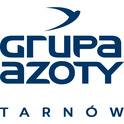At 12:00 noon on Friday, November 21st, a webchat was held with Andrzej Skolmowski, Vice-President of the Management Board of Grupa Azoty S.A. responsible for finance.
At 12:00 noon on Monday, September 22nd, a webchat was held with Andrzej Skolmowski, Vice-President of the Management Board of Grupa Azoty S.A., hosted by the Polish Association of Individual Investors.
At 11:30 am on Monday, May 26th, a webchat was held with Andrzej Skolmowski, Vice-President of the Management Board of Grupa Azoty S.A., hosted by the Polish Association of Individual Investors.
On Thursday, December 3rd 2013, the Polish Association of Individual Investors held an investor webchat.
On Thursday, September 5th 2013, the Polish Association of Individual Investors held an investor webchat.
